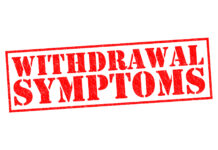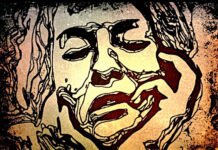Mad Activists: The Language We Use Reflects Our Desire for Change
There is not one movement but many, and the language people use reflects how accepting they are of the psychiatric explanation of their experiences.
The Importance of Empathic Listening for Making Meaning of Distress
Psychiatrists would gain more understanding if they listened to their patients and worked with them to make meaning of their distress.
Antipsychotics Increase Risk of Dementia; New Research Illuminates Why
In JAMA psychiatry, researchers outline new theories connecting antipsychotic use in people with schizophrenia and increased dementia risk.
Honoring Jane Whittington: 1950-2021
It’s with great sadness that I am writing of the sudden and unexpected passing of my former husband and best friend Jane.
The Cochrane Tapes Reveal a Horrendous Show Trial Against a Critic of Psychiatry
Why did Cochrane expel one of its best known scientists, who had helped get Cochrane started and bolstered its reputation? What happened that day?
Breaking with Disorder: The Invisible Flames of Mental Illness Labels
These labels left me docile to a broken mental health system—a carceral system that viewed me interchangeably as a patient or an object, but never a person.
What We Have Always Known but Psychiatry Forgot
When I came off my last medication, my psychiatrist said to me, “You will get sick again.” Psychiatry has always been sure that I would never recover from bipolar disorder.
What Can We Learn from Alcohol? A Paradigm Shift in How We View Distress
The effects of alcohol—both positive and negative—have a lot to teach us about the biomedical view of psychiatric diagnoses and the drugs prescribed to treat them.
Review: “(Mis)Diagnosed: How Bias Distorts Our Perception of Mental Health”
Psychiatric diagnoses can be shaped by prejudice, reflecting biases that ignore trauma, diminish populations, and invalidate humanity and experience.
Newborn Babies Go Through Antidepressant Withdrawal
A new study finds that newborn babies experience antidepressant withdrawal after birth if their mothers take SSRIs when pregnant.
Inner Fire: Where Seekers Have a Choice
A Vermont residential community program helps people taper or stay off medications with holistic care embedded in a pastoral setting.
Remembering Don Weitz, 1930-2021
My hero, mentor, and very dear friend Don Weitz died comfortably, in his home, on the afternoon of September 1, attended by his loving twin children, Lisa and Mark.
Truth-Telling and Consequences
It’s at that point of asking for help from someone in authority, someone we should be able to trust, that many have their story stolen from them.
Psychiatric Drugs may Reduce Social and Emotional Capacities
Research finds that social cognition and emotional processing abilities can be disrupted by psychiatric drugs.
Psychedelics—The New Psychiatric Craze
Psychedelics have become popular through the potent mixture of financial interests and desperation. Evidence for their beneficial effects is lacking.
Tapered Antipsychotic Withdrawal Mitigates Risk of Psychotic Symptoms
Research suggests that slowly tapering off an antipsychotic reduces the risk of withdrawal psychosis compared to abrupt discontinuation.
Interview: Moving Toward a Human Rights Approach to Student Mental Health
Psychologist Jim Probert of the University of Florida's student counseling center explains why "Our goal is not to take the steering wheel out of the person's hands."
The Sins of Conservatorship: Why Britney Spears Compared It to Slavery
For the last three years of my mother’s life, she was under absolute control of her conservator. If we dared to object to the neglect or abuse, retaliation was certain.
“Relapse” in Antidepressant Trials Likely Caused by Sudden Withdrawal
A new study investigates how antidepressant withdrawal effects often get confounded with depression relapse in clinical trials.
The Great Triumph of Roxanne Stewart-Johnson: Psychiatric Refugee
Roxanne fled to Canada, and received formal refugee status, as a psychiatric refugee after being threatened with psychiatric imprisonment and forced drugging in Jamaica.
Can Psychotherapy Promote Liberation? Addressing Power Dynamics in Clinical Practice
Just as it risks transmitting harmful narratives about pain and distress, psychotherapy might also subvert these very harms in pursuit of genuine healing and transformation.
Jim van Os and Peter Groot: When Assessing Antidepressant Withdrawal Methods, RCTs Fall Short
Jim van Os and Peter Groot discuss their paper: “Successful Use of Tapering Strips for Hyperbolic Reduction of Antidepressant Dose: A Cohort Study” published in the journal Therapeutic Advances in Psychopharmacology.
Akathisia: Very Nearly the Death of Me
Akathisia is truly an indescribable thing—and has to be one of the most hellish experiences on earth. It’s like your brain is hijacked. Every day I thought could be my last.
Rights Based Global Mental Health and Social Exclusion: An Interview with Ursula Read
MIA interviews the anthropologist Ursula Read about her research on mental illness, human rights, and social exclusion in Ghana.
Sudden Antipsychotic Withdrawal—Not Low Dose—Leads to Relapse
A new article in Lancet Psychiatry debunks past studies claiming that those on low doses of antipsychotics are more likely to relapse.

































